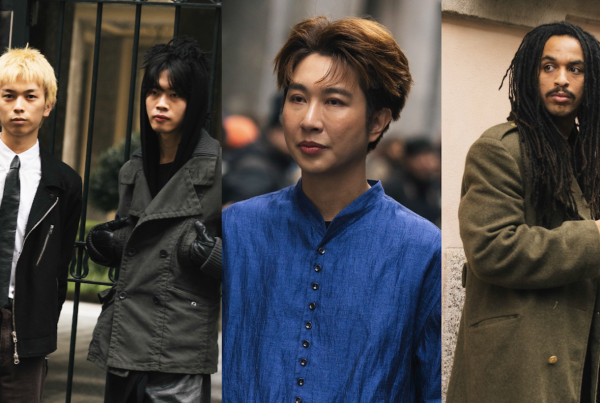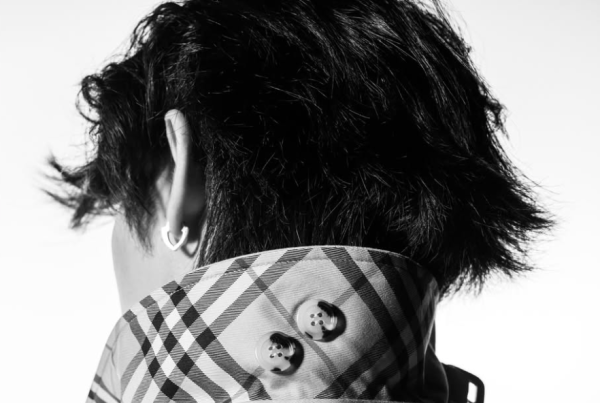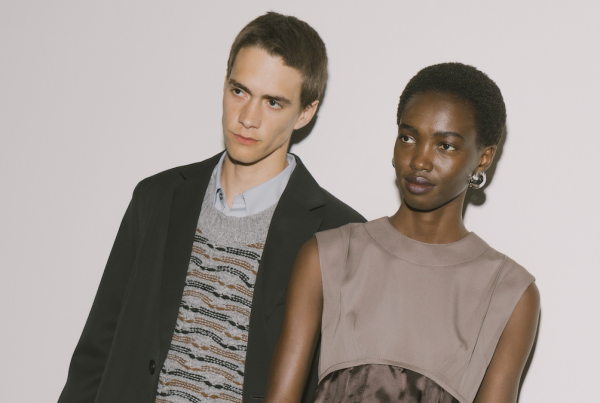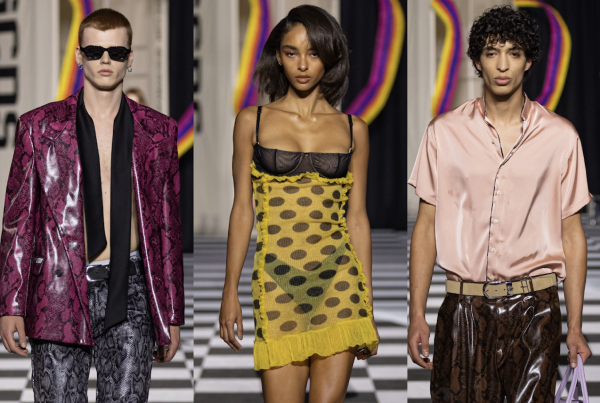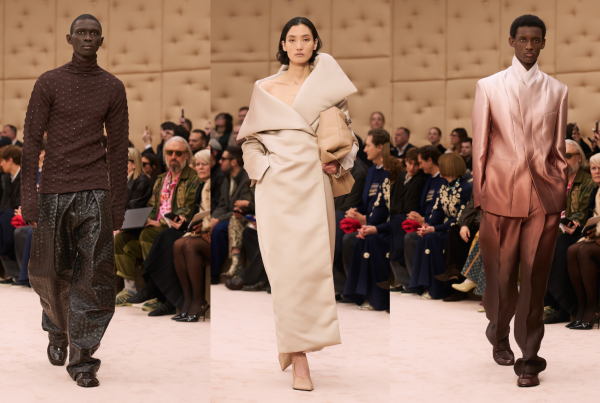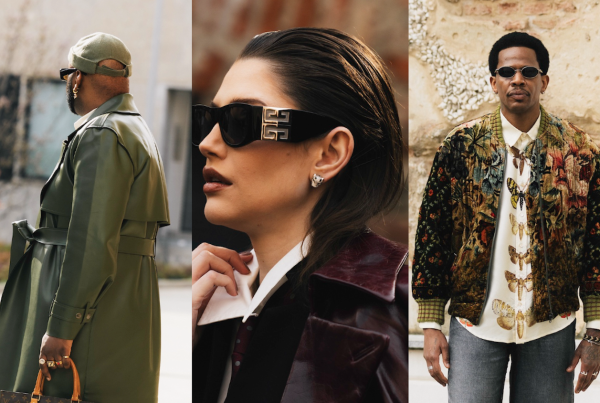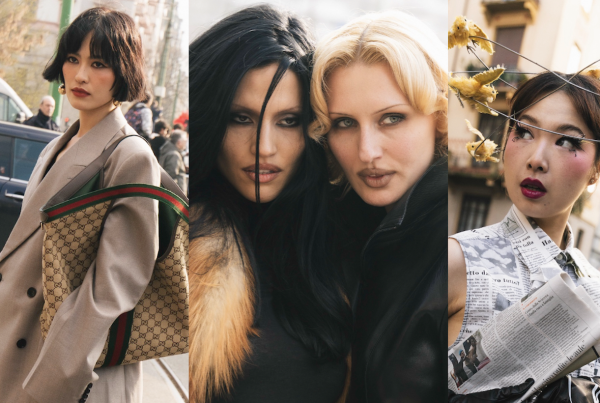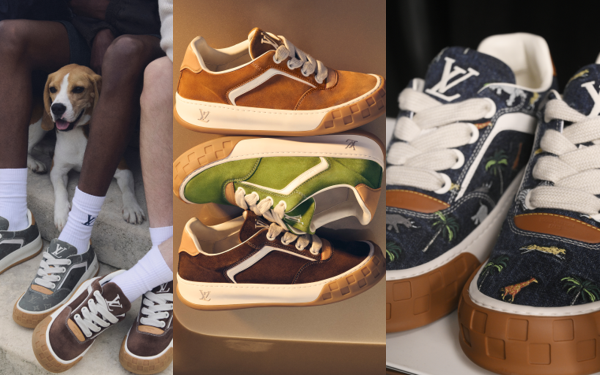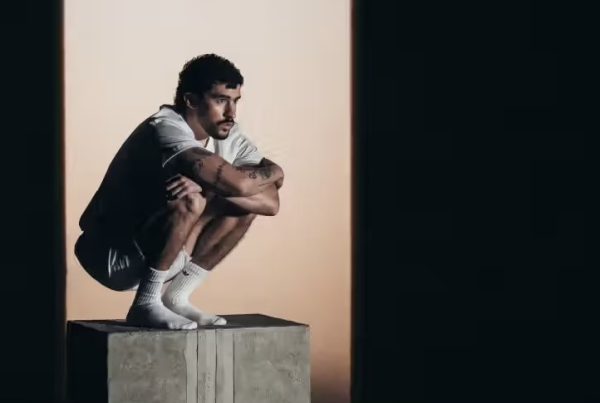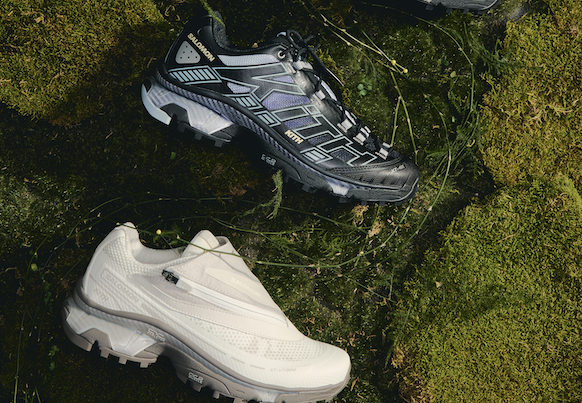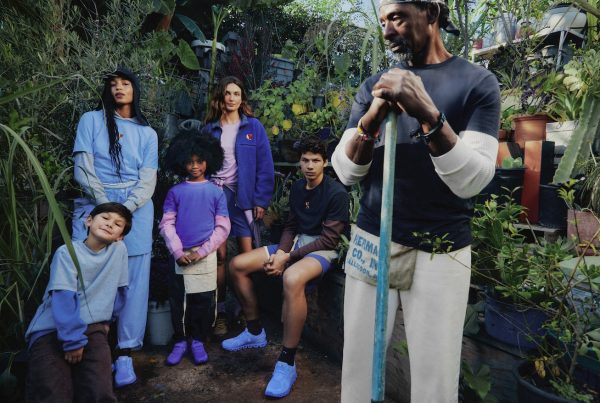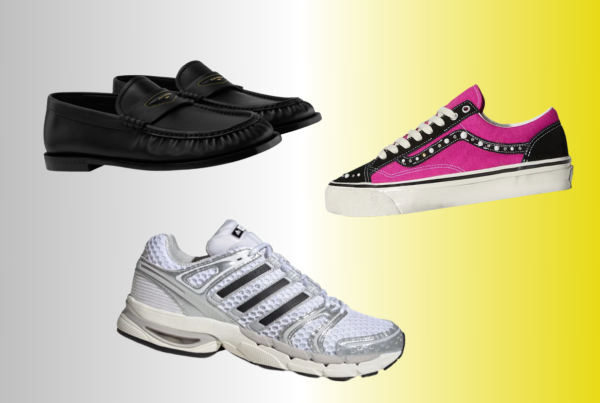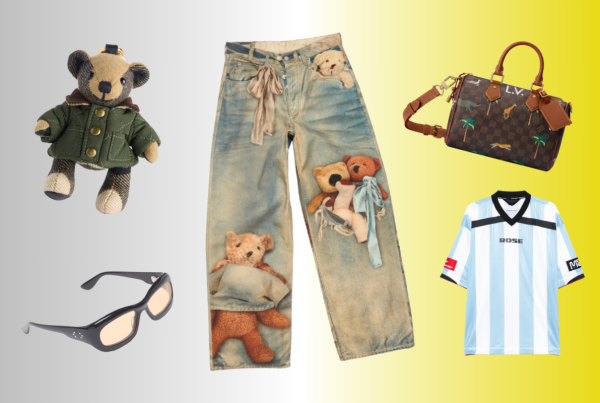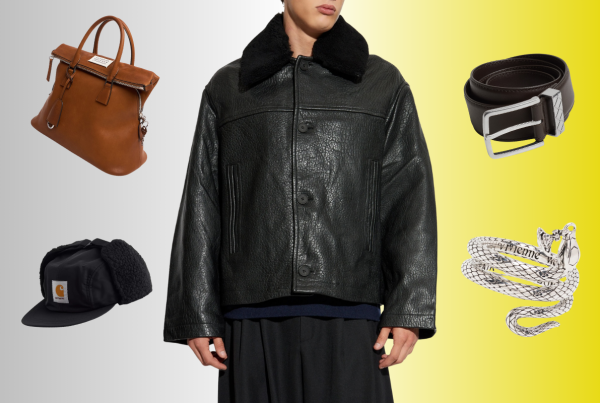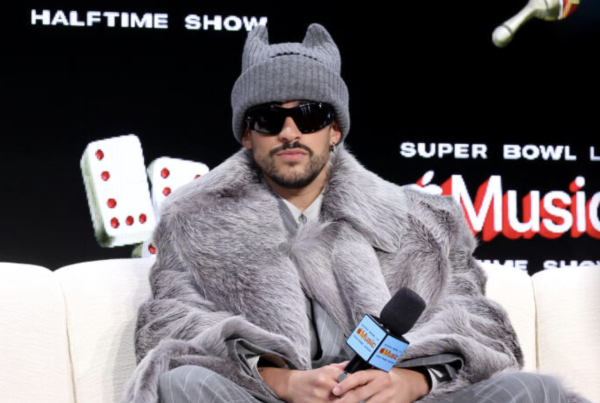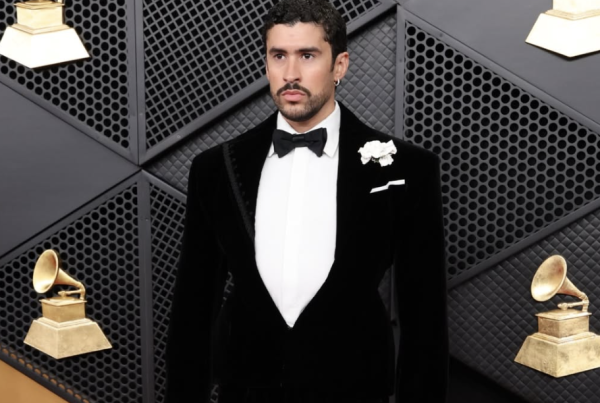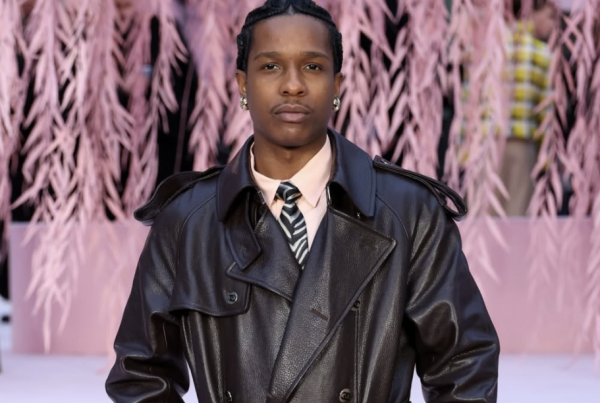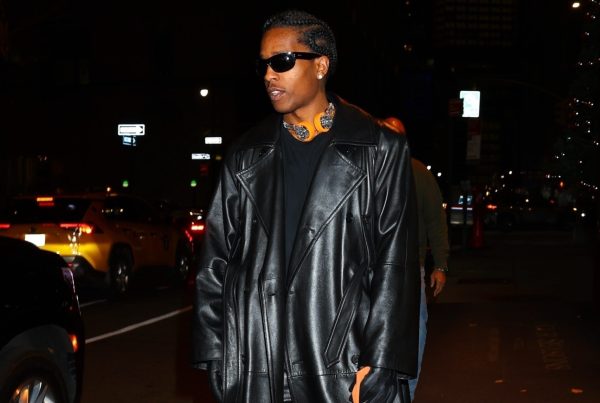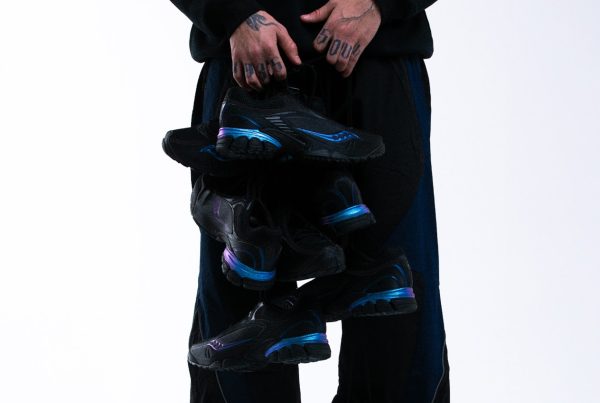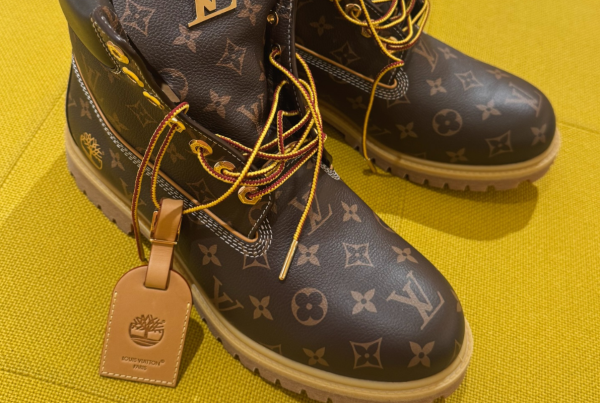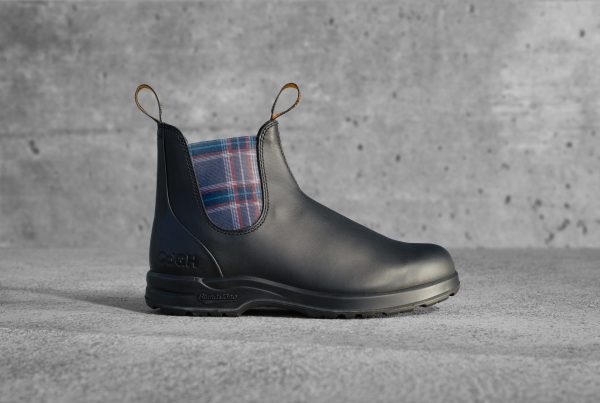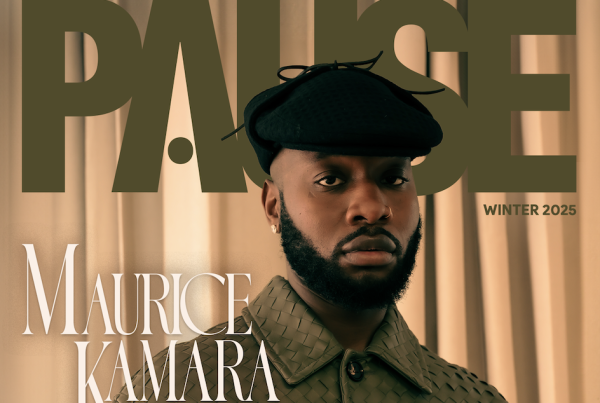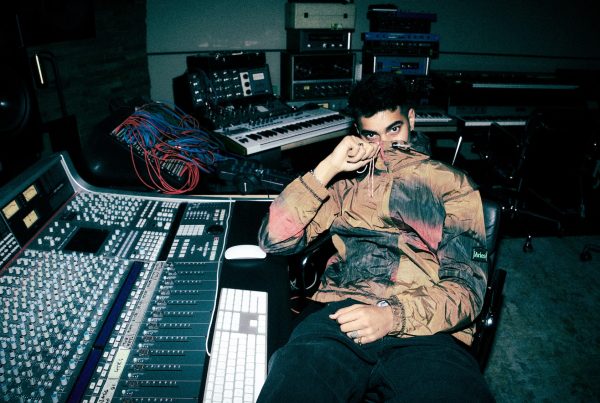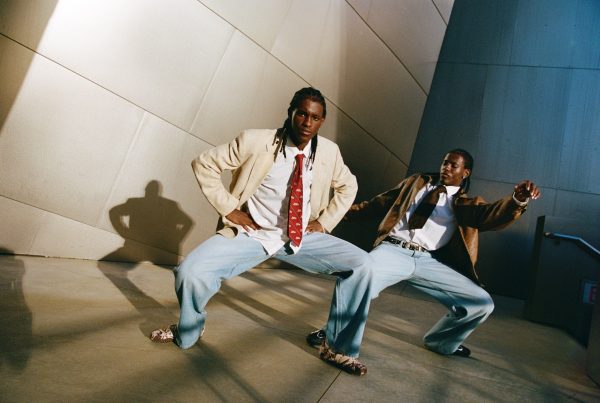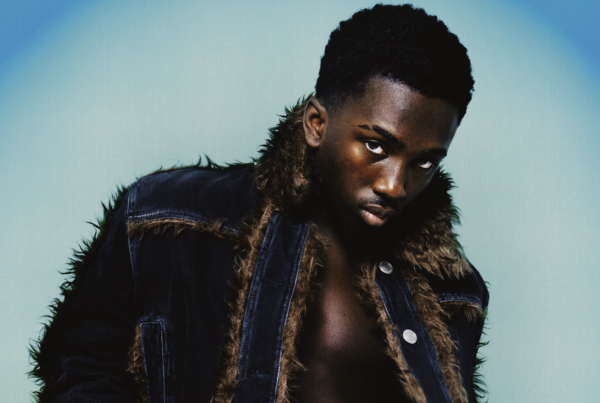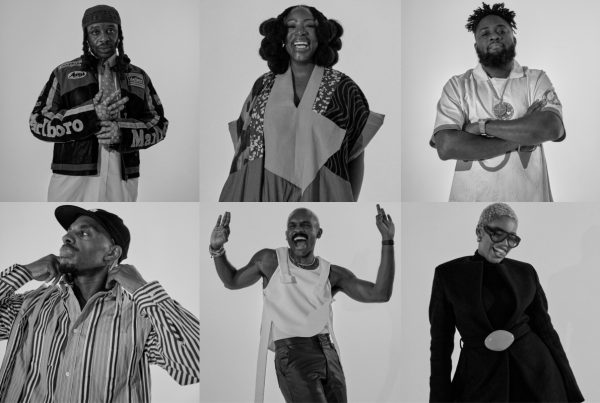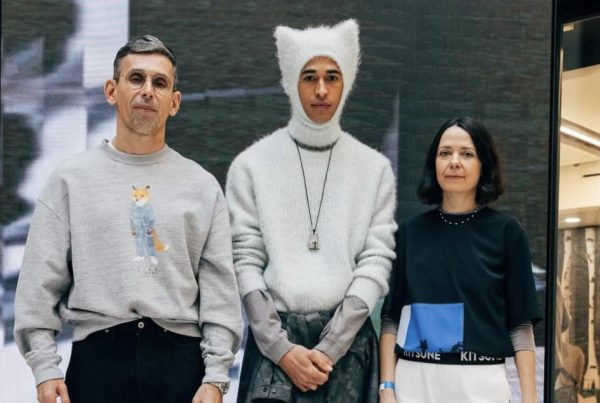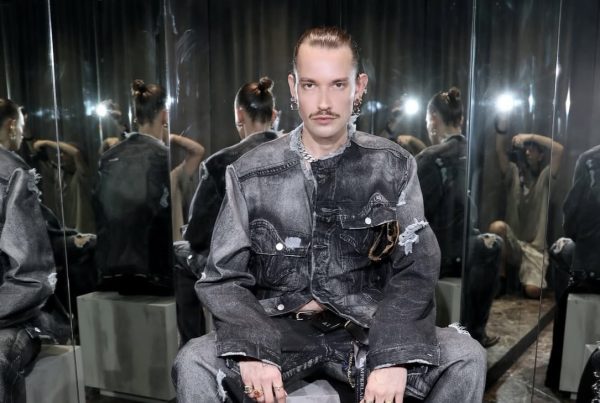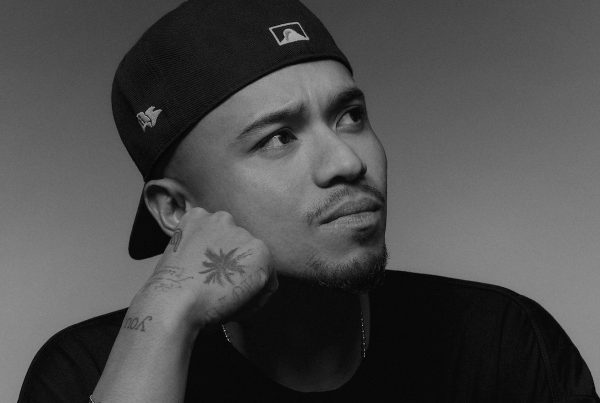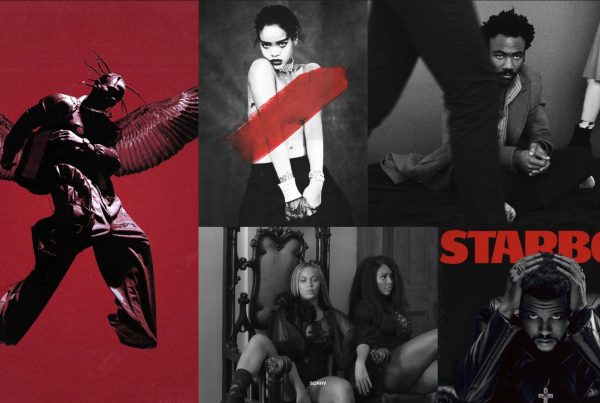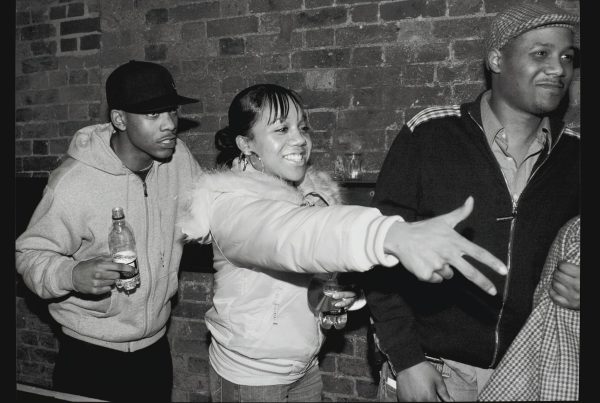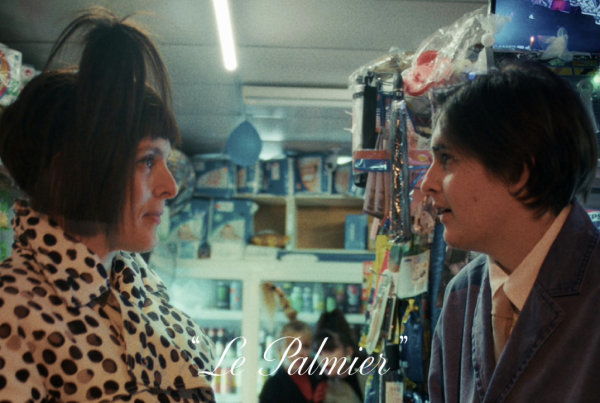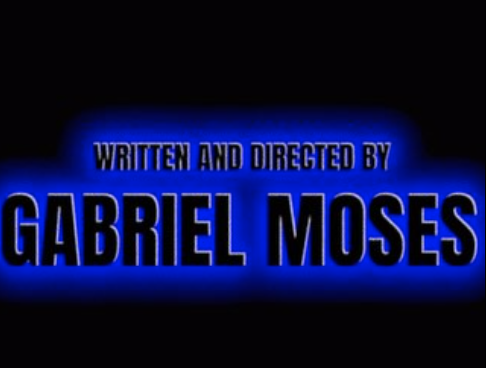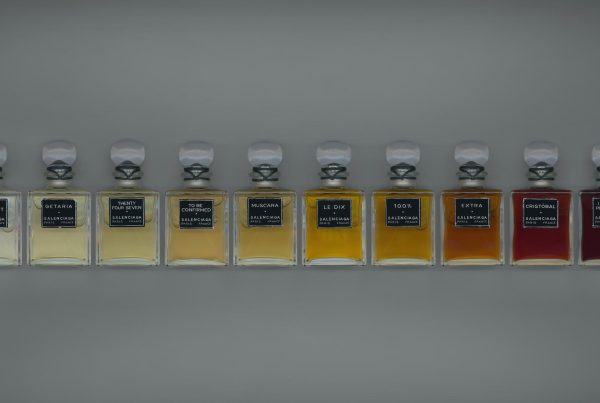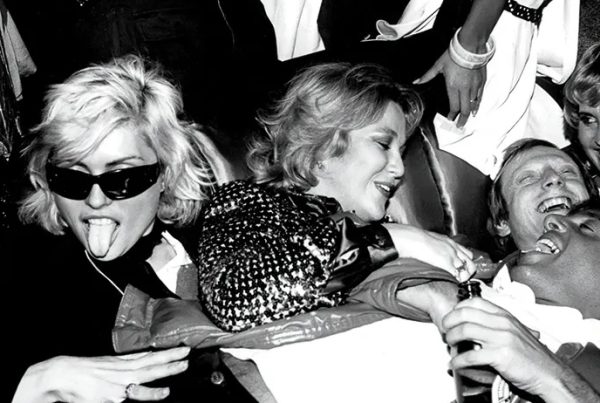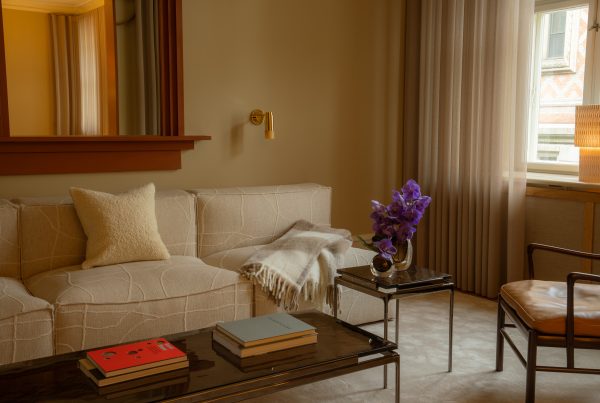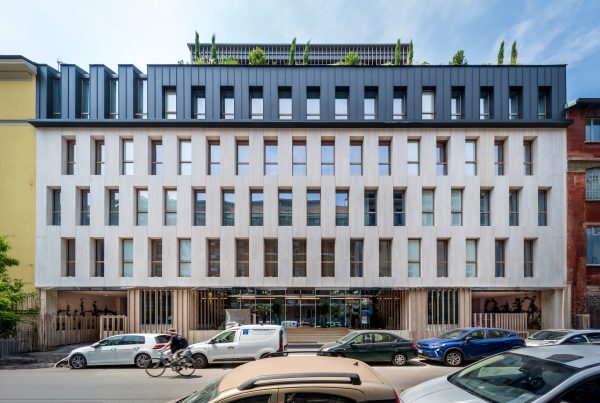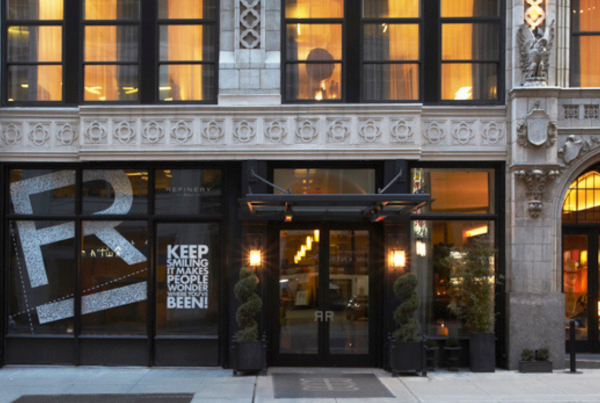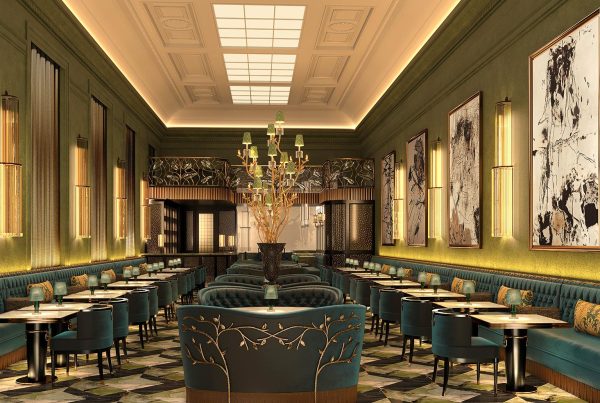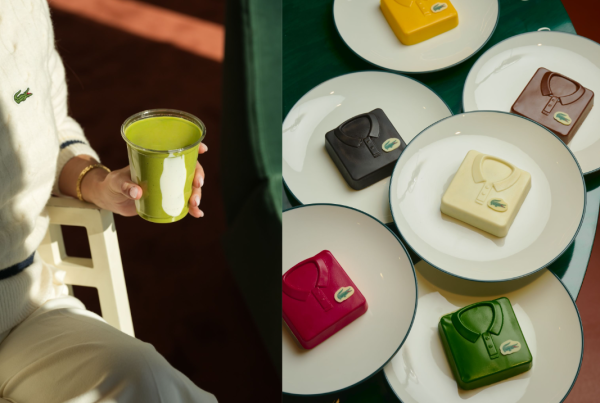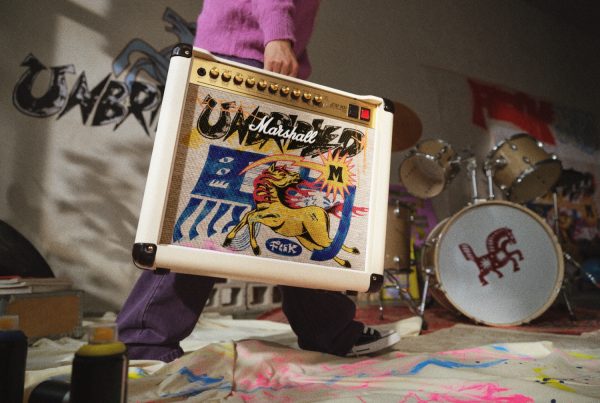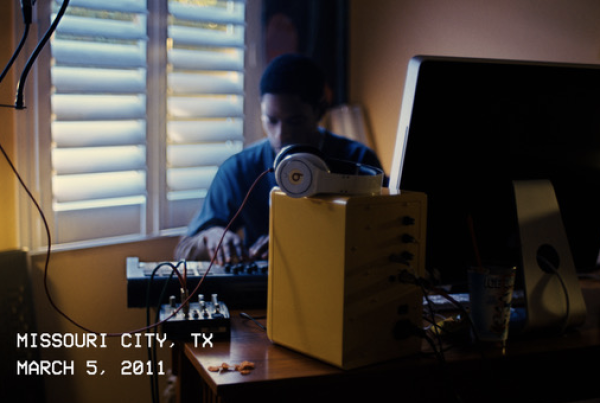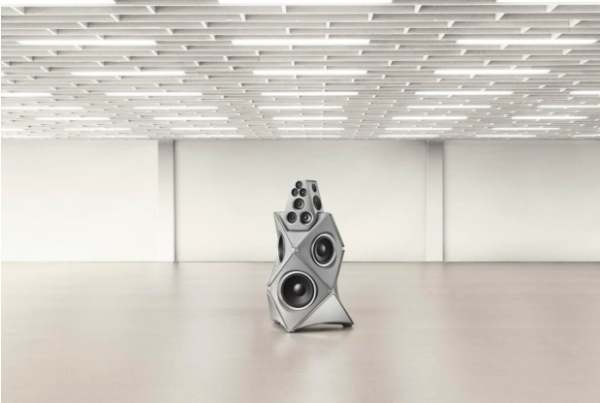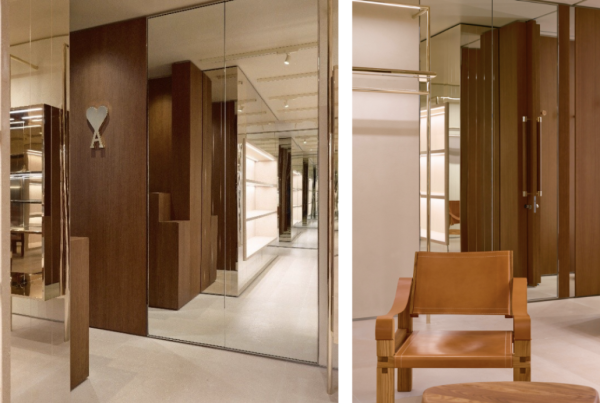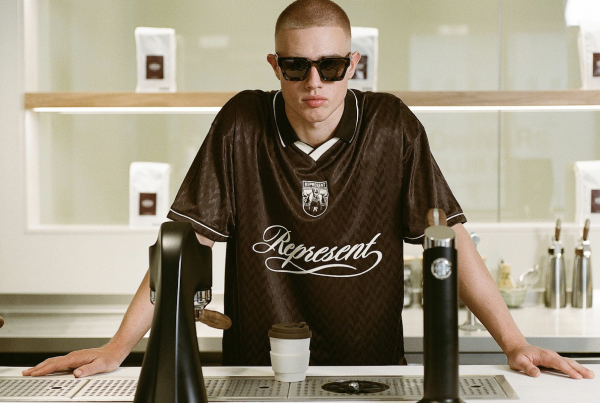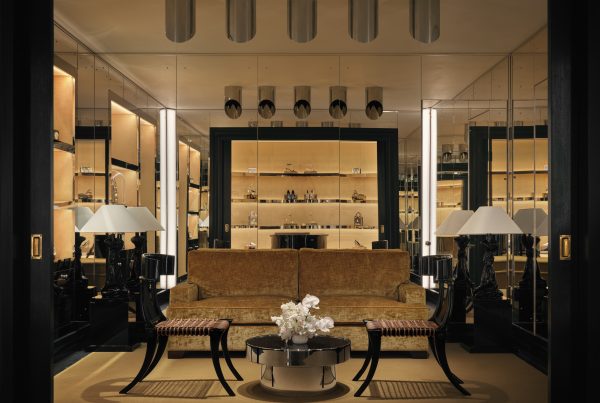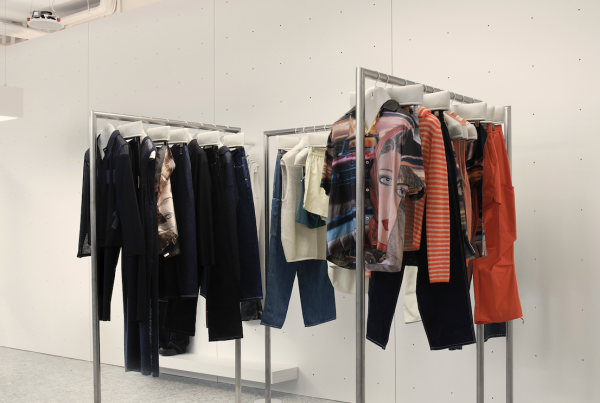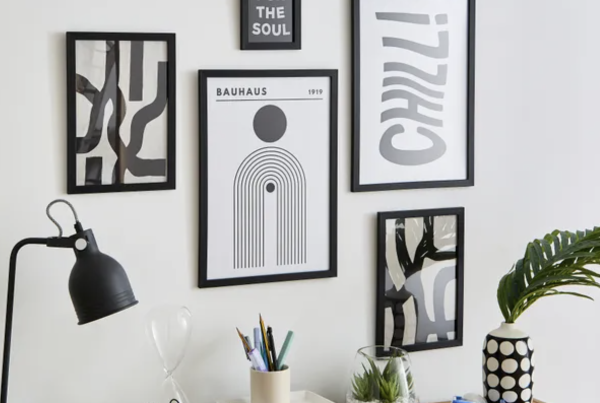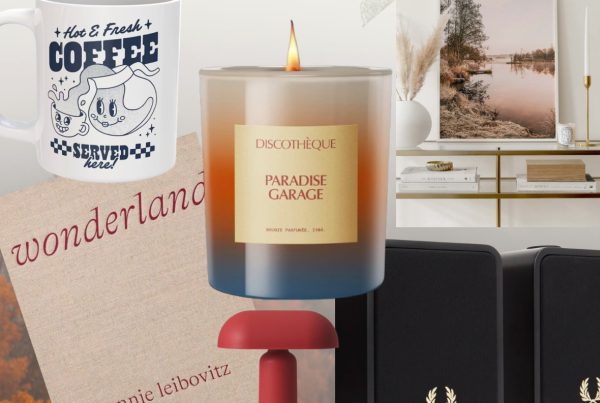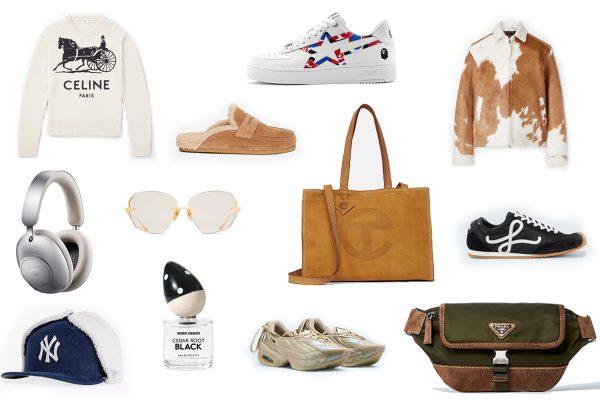Last week, journalists and insiders gathered in the Royal Festival Hall, London, to discuss the release of the KYRIE 4 with basketball all-star, Kyrie Irving, and his design partner, Benjamin Nethongkome. Kyrie Irving is a well-known figure in the sporting world, known for his on-court excellence, extreme intelligence and uplifting character. Benjamin Nethongkome, his design partner in crime, is an enigma for us right now. We know that the designer is passionate about basketball, spends a lot of time watching Irving play, and is very good at solving problems. I had the amazing opportunity of sitting down with Benjamin after the on-stage discussion to find out more about his inspiration for the Kyrie 4, his relationship with Irving, and his opinion on the future of basketball shoes. Read the interview below.

What made you choose basketball design over any other type of design?
When I first moved to America from Thailand I was exposed to basketball courts and also video games. All the friends I made were playing basketball. And so, as a young kid, I was introduced to all of that very quickly. Alongside that, when I first got to America I had a crazy passion for art, and those two worlds just collided for me – sport and art. It was later towards high-school that I discovered that there’s actually a thing called ‘footwear design’, and you have to do an industrial-design degree and work your way through that path.
With basketball, there’s just something so exciting about the game and when you play it’s so poetic. It’s tranquil. If you’re in the zone, then you’re not really actively doing anything. Your mind takes over a little bit. There’s something about that that draws me into playing basketball a lot more.
Did you like basketball shoes too?
Oh, the product? Absolutely! It was just like: Miami, hip-hop, basketball. It was a perfect marriage. All had come together for me.
Do you remember the first time that you saw Kyrie play? And was there anything in his manner of play that made you think more widely about shoe design?
Yes! The first time I saw him play was actually last December. I had never seen him play live until then. The cameras don’t catch every single thing he does. It’s the off-camera stuff that you pick up, specifically his off-ball movement and coordination, it’s so impressive. You always think “oh, I want to design a shoe for him to move well when the ball is in his hands”, but actually, he has to get around defenders to get the ball into his hands. To do that, he would require a series of movements that I’m like “I don’t see that on TV”. He’s shifting, moving around to get the ball and in those movements… there’s something more to that than just the cuts. It isn’t just a one-directional thing, it’s multi-directional – and that’s what I saw live. It impressed me a lot, and I took away from that that I needed to re-think my approach.

Do you think it’s important to constantly manipulate the shoe design to fit the player as time goes on, because of player development? They get better and their tactics change. Is that very important to shoe design?
We continue to evolve rapidly. We realise that basketball players are doing that themselves. Like Kyrie, he isn’t just on a plant-based diet, and when you hear stuff like that you realise that not every athlete thinks that way and that’s just how much attention and detail he pays to becoming a better basketball player. I’m driven by his actions: how he does things on the court and off the court. That inspires me to do better with the designs as well. I need to pay more attention to those details in the same way that Kyrie is paying attention to those details.
Where do you think the future of basketball design is headed?
As a matter of fact, I designed the Kyrie 4 which you see now in the market, but before we got there we said: “hey, let’s not design the 4 like this, let’s think about the future and then work our way back.” What’s the main vision that we’re trying to get after? The 6. That’s essentially what we want to do, however, technology is not ready for that yet. If that’s the dream can we trickle back to the 5, and then the 4? That’s just the way we’re thinking about the future. These are the problems that we’re trying to solve, and the technology may not exist yet but that’s what we’re working on.
Do you think something like the Nike HyperAdapt could be adopted by the basketball shoe?
If the HyperAdapt was available commercially, then that could definitely be a tool I would use. Right now for Kyrie, there’s a certain mark that we’re trying to hit in terms of price-point so that might be a little later down the line.
So you spoke about being a part of a team before and now you’re in charge. What do you think is the main difference between those roles, and what challenges have you faced so far?
Before it was mainly that I took on a job where I designed tiered signature models. There’s a vision from the actual signature model, and then there are several tiers and you follow a paved path. Now, it’s no longer following a path, it’s trail-blazing your own. You now have to lead the design aesthetic and the design problem solving, and then the other tiered models will follow suit. Before, it was having inspiration by the game shoe and then designing against it. Now it’s like, no, you have to identify what that is and blaze the trail yourself, which is a big challenge, but also super exciting because Kyrie’s got your back! [Laughs]

Was that so surreal for you, when you found out that that’s what you would be doing? I can’t even imagine what that would feel like.
I’ll tell you the story. So, the design director of Nike Basketball is Leo Chang, and for many years I was like “hey, I would like to work for you one day” and he was like “sure, you need some more experience, it’s not that you’re not ready, it’s just that it’s better for you.” And so I took on these other jobs that I felt would set me up for success. I took jobs at Innovation Kitchen and at Court Performance. That made me become a more creative thinker and solve problems at every tier’s price-point. It displayed a skill that was unique. Not many designers would see that as a sexy job, but it gave me the opportunity to work with Kobe Bryant and LeBron James at a $100 price-point.
What I was able to create with that hundred dollars was impressive enough to attract people like Leo Chang and make him think “you know what, he may have something.” And so, having him call me into his office and say “the time has come, I’d like to have you on my team, and not only that, you’re going to be designing Kyrie.” I was like “nah, this has got to be a joke!” I remember I waited a little bit, and then he sent me an official email that said: “Ben is taking all these projects”. I saved that email, I printed it – this is it! I’m a Kyrie designer! It was amazing!
Did you ever think you would get to this stage?
You always work towards it. I interned twice at Nike to even land a job there, but I knew that I just had to keep at it. One day, it’s going to happen. If it’s not your time now, it will happen later. Until then, keep your eyes on the prize and stay focused. Nothing was guaranteed, nothing ever is guaranteed, but I knew if I kept at it and my head in the game then I would be alright.
How did you get into footwear design?
It was a marriage of a culture I was immersed in. I am a product of my environment in Miami – hip-hop and basketball – just that whole movement. I was also a nerd, a video game kid, and a lover of art. And those two worlds collided and it just made sense to design basketball shoes for basketball players who love hip-hop and anime and sci-fi and video games.

You’ve said that shoes are purposeful things – objects that have a narrative behind them. Do you think that people aren’t focusing enough on that and looking solely at style to decide whether or not they like a shoe?
I think it depends who you ask. For us, those who are designing basketball shoes, we cater towards our consumer and they are mainly athletes who live a dual path. They have an off-court lifestyle and an on-court lifestyle. As designers we are designated to deliver both: on court high-performance basketball product and beyond. I feel that that is really important.
Right now, it’s popping, for sure it’s popping. The Off-White Collection was such a huge success, and even the Kith LeBron and other collaborations with high-fashion designers, it’s attractive. But I think people would always know that when Nike put out something it is always deeply rooted in performance. That’s where it began. The VaporMax, even though Comme des Garçons collaborated with us, that shoe was rooted in performance and was made for runners to run in. That’s what makes it cool – it’s authentic.
How important is a good relationship and understanding between player and designer?
Vital! We have to get on the same wave-length. We aren’t finishing each other’s sentences right now, but there are moments where we’re like “ah, ah nearly there!” It makes the flow much easier, there’s no second-guessing of “is he going to like this or not?” If we aren’t on the same wavelength then I can just go back to the drawing board and rethink. That rapport that we have with each other is vital – it needs to be strong for sure.
How do you shoot ideas off of each other?
Sometimes he comes to me like “Yo Ben I want my next shoe to feel a certain way” and I respond “OK, well what do you mean by ‘quicker’?” Quicker can mean different things to me. He does come up with ideas and concepts and it can be based on whether it’s a graphic or a colourway or an actual design. I would take that information and work with it. He’s been so involved lately that it’s been special. I told him that it feels so novel that it’s not just me drawing something and presenting it to you; it’s us coming together and collaborating on something and making something together, which is different to the traditional way of designing footwear.
Nike is good at doing that – working with their collaborator.
Yeah, a good example is the Virgil Off-White. You can tell that their relationship was so close. Virgil was open to working on things and Nike kept going back and forth on ideas.

Kyrie changed teams from Cleveland Cavaliers to Boston Celtics. How did that affect the shoe design?
I would think less about the shoe and more about him as an individual. He went from potentially second option to now primarily the main option. That means he has become more of a leader for his team than before. He has adopted that role, and I feel like he has also transcended that into footwear design. He has now become more of an owner in the design process as opposed to just sitting back and waiting to see something. That’s the difference. Shifting teams, shifting mindsets – new year, new me. We’re excited about that for sure.
You were talking about the ’15-second window’ to catch the attention of your audience. What will I, or anyone else, notice about the Kyrie 4 in that window?
We took a trip before we designed this shoe. We went to the local footwear store and we looked at the wall. We noticed that every basketball shoe was looking similar, and so, we wanted to do something special with the Kyrie 4. It might cause some people to dislike, or like, but at least it was different. And so one of the things that stands out is obviously the very aggressive rubber wrap on the sidewall that, at one point, we were very against. But then, when we showed it to Kyrie, that’s when he said “No, this is the right move.” He thought that this was going to cause some people to really love the shoe, that this was the detail that was going to stick. I feel like that’s something that we’re trying to push now, you know, being a dreamer. Moving forward, we’re definitely doing that for sure.
And that ‘groove’ on the shoe, and also the ad ‘Find your Groove’, is that also connected to Kyrie’s personality?
Have you not seen him dance?! Yes! He’s definitely got soul, for sure. It’s a double take. On the court he does his thing and once he finds his groove he’s killing it. And the bottom of the flex-groove links to that too. But also, I’m not sure if you’re familiar, his music library is so versatile. It ranges from country to Celine Dion, to hip-hop – it’s all over the board which is kind of interesting. To be 25 years old and have a deep collection of music inspires me to dig deeper and learn more about him as well.

So, the Kyrie 4 ‘Confetti’. Kyrie carries a piece of confetti from last year’s Finals to remind him of what it took to get to the Finals, and what it meant to fall short of the mark. It honours a win-or-learn mentality. Is this something you have learnt from?
The Confetti came out with the launch shoe. Imagine that, you’re going in to wear your next shoe for the first game and there’s confetti at the bottom. What does that tell you? Yo, I’m going back! We’re trying to cause heat and excitement again – don’t forget that’s the goal. Even if you don’t make it now, don’t ever lose track of that. And so when people saw the 4 for the first time on the court they were like “what’s going on?” I think that was the reason we wanted to make that happen, make it come alive.
Do you think it’s important for young people, and anyone trying to achieve their goals, to understand that if there is a setback they shouldn’t take it personally and keep on working towards their dreams?
Yes! It is very important. This upcoming youth is an entitled generation. You have to remember that it is never an easy journey, and nothing is ever promised. You have to really put in the effort, and I think Kyrie really embodies that. He puts a lot of work in, all season. I get inspired by that and I hope kids get inspired by him and the design community. Man, we’re up until four in the morning every day making sure this thing is tight. You have to make some sacrifices and put in the work for that.
The Nike Kyrie 4 London PE was debuted at the NBA’s annual London Game. Mixing purple, yellow, white, and red detailing, the shoe honours the Royal Philharmonic Orchestra whilst also embodying Kyrie’s passion for music. The Kyrie 4 comes in the classic Black/White colourway, ‘Confetti’, London PE, ‘BHM’, and the ‘City of Guardians’ selection which is set to release early next month.

